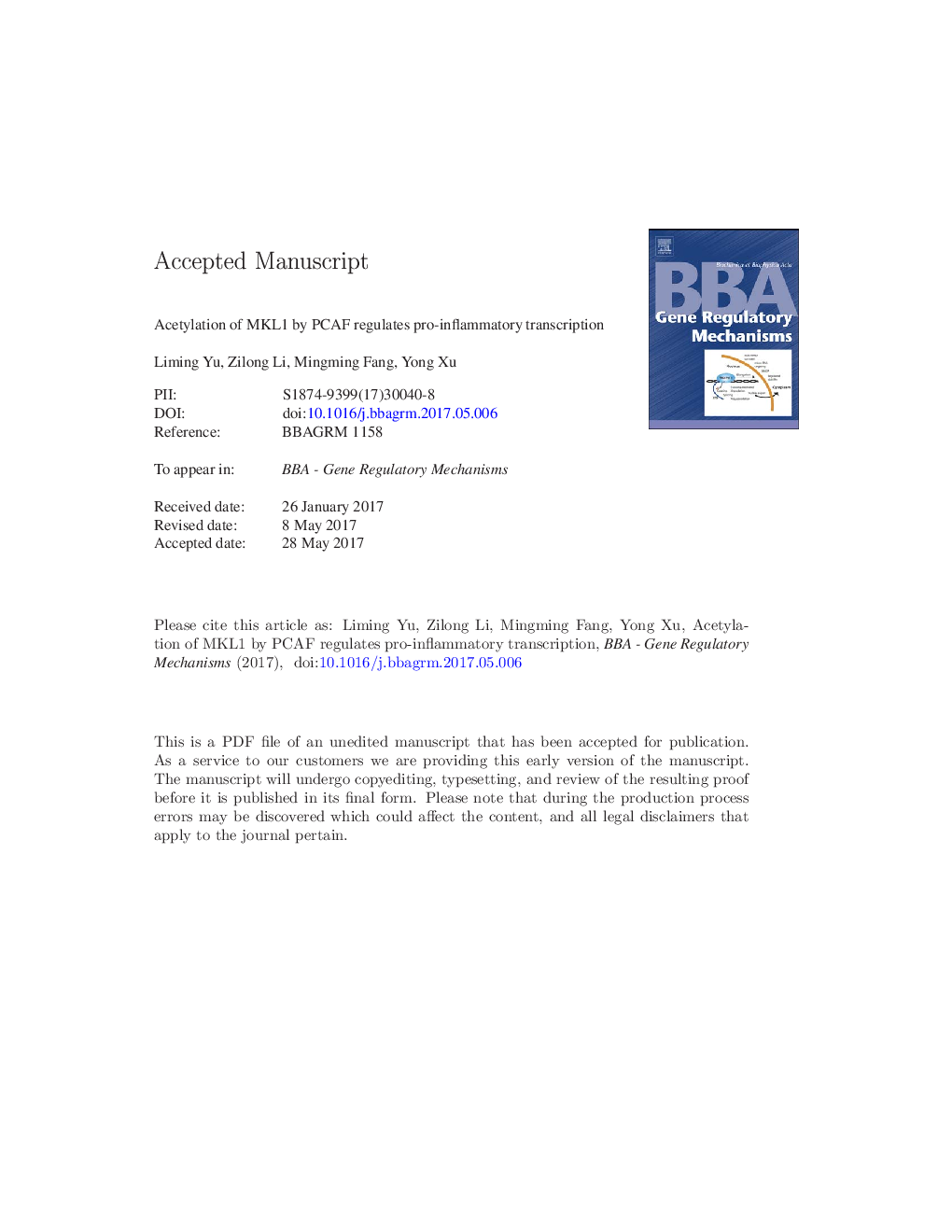| Article ID | Journal | Published Year | Pages | File Type |
|---|---|---|---|---|
| 5507756 | Biochimica et Biophysica Acta (BBA) - Gene Regulatory Mechanisms | 2017 | 28 Pages |
Abstract
Inflammation is considered a fundamental host defense mechanism and, when aberrantly activated, contributes to a host of human diseases. Previously we have reported that the transcriptional regulator megakaryocytic leukemia 1 (MKL1) plays a role programming cellular inflammatory response by modulating NF-κB activity. Here we report that MKL1 was acetylated in vivo and pro-inflammatory stimuli (TNF-α and LPS) augmented MKL1 acetylation accompanying increased MKL1 binding to NF-κB target promoters. Further analysis revealed that the lysine acetyltransferase PCAF mediated MKL1 acetylation: TNF-α and LPS promoted the interaction between MKL1 and PCAF whereas depletion of PCAF abrogated the induction of MKL1 acetylation by TNF-α and LPS. Acetylation of MKL1 was necessary for MKL1 to activate the transcription of pro-inflammatory genes because mutation of four conserved lysine residues in MKL1 attenuated its capacity as a trans-activator of NF-κB target genes. Mechanistically, MKL1 acetylation served to promote MKL1 nuclear enrichment, to enhance the MKL1-NF-κB interaction, and to stabilize the binding of MKL1 on target promoters. In conclusion, our data unveil an important pathway that contributes to the transcriptional regulation of inflammatory response.
Related Topics
Life Sciences
Biochemistry, Genetics and Molecular Biology
Biochemistry
Authors
Liming Yu, Zilong Li, Mingming Fang, Yong Xu,
